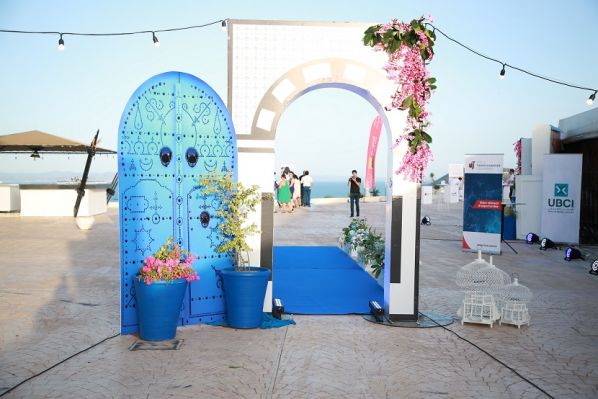Sustainable Development Goals and Corporate Social Responsibility: What Framework Post Tunisia2020

Tunisia2020
On November 29th and 30th Tunisia hosted its second international investment conference, Tunisia2020, following ‘’Invest in Tunisia- start-up democracy’’, an initiative launched in 2014 under Previous Prime Minister Mehdi Jomaa’s government, in order to attract foreign investments.
This year several countries ( including the United States, France, Canada and several Gulf monarchies), international organizations ( such as the World Bank, the African Development Bank, and the European Investment Bank), investment funds and representatives of the public and private sectors as well as civil society actors have answered the Tunisian authorities’ invitation favorably. The main objective for Tunisia2020 has been to restore the country’s image abroad and to promote its development plan for 2016-2020, issued last April by the Ministry of Development, Investment and International Cooperation.
In fact, the budgetary envelope estimated 120 billion Tunisian dollars of investment, among which 45 billion TND were for public investments, 57 billion TND for local private investments and 18 billion TND in FDI. Scholars and economists argued, however, about the nature of the content of this plan. In a critical study report (french version), Solidar Tunisie blamed the lack of quantitative indicators. Moreover the NGO questioned the role of private investment in the healthcare and education sectors, and suggested to take into account environmental aspects related to transport terms, besides evaluating the impact of big equipments on the ecosystem, such as ports in deep water environments. The report also underlined the absence of actions, and monitoring reform indicators regarding regional development and social and economic inclusion.
In the aftermath of the Petrofac case, social inclusion is becoming a key element when it comes to investment. So what is the role of foreign and private investments in regional development and its sustainability? And what indicators could both companies and government use to measure social inclusion and development?
Tunisian Legal Framework
To answer those questions, it is important to have a look at the Tunisian legal framework regarding ‘’Corporate Social Responsibility and Sustainability’’. In Fact, thanks to the adoption of Human Rights International Convention, Tunisia has developed through the years a strong labor code, a distinct environmental protection legal framework, and encouraged since 2005 the implementation of the United Nation’s Global Compact. The latter offers companies groundwork to adopt a corporate social responsibility (CSR) policy. ‘’The UN Global Compact’s Ten Principles are derived from: the Universal Declaration of Human Rights, the International Labor Organization’s Declaration on Fundamental Principles and Rights at Work, the Rio Declaration on Environment and Development, and the United Nations Convention Against Corruption.’’
In addition, Tunisia has actively participated in the achievement of ISO 26000 since 2004, by organizing a sensitive regional workshop about this standard in December 2009. ISO 26000, constitutes a key element for the strengthening and the standardization of CSR. It defines it as: ‘’the continuing commitment by business to behave ethically and contribute to economic development while improving the quality of life of the workforce and their families as well as of the local community and society at large’’.
Currently in Tunisia, however, companies are subject to three constraints: first, the economic tensions due to the needs for long-term security; second, the social pressure, such as social movements that Gafsa witnessed in 2008 and Kerkennah saw earlier this year; and third, the environmental degradation that was drawn up by protests in Jerba in 2012. A development strategy would therefore be essential to integrating economic, social and environmentals solutions and favoring sustainable investment.
Sustainable Development Goals as SMART indicators for the private sector involvement
The Sustainable Development Goals (SDGs) are 17 goals that were presented by the United Nations in 2015 as indicators for development for the next 15 years. They follow the Millennium Development Goals (MDGs), which were considered to be a success mainly because China had achieved a huge reduction in poverty. It also happened at a period where China became more liberal. The question that arises, then, is if the private sector was the reason behind that success?
Interestingly, the private sector’s role in achieving MDG’s was not discussed at that time. However when the UN started a review of MDGs in 2012, the implication of the private sector became a subject for reflection. Furthermore the Human Development Reports of the UN Development Program in 2014-2015 emphasized the importance of a resilient and healthy economy for private investment both in the case of large firms and that of small and medium-sized enterprises. More specifically in both categories Corporate SR enhances several factors that SDGs has she light on such as living wage , fair trade, less pollution, human rights, gender equality and community development. Above all the SDGs should become a central element in investment decision as suggests Uniliver CEO Paul Polman, who’s convinced that they offer ‘’ a great economic opportunity ‘’ . The reality, however, is that such changes are only possible if governments have the willpower to make regulatory policies.
Tunisia as a Hub for Sustainability
In this time of economic crisis, some might argue that the Tunisian Government is n a weak position to put conditions, however the general perception is that Tunisia has taken the lead in terms of democracy and accountability in the region, and capitalizing on that by ensuring Tunisia benefits from sustainable investment will guarantee a healthier and more inclusive future for Tunisia and all Tunisians.
related news




About the author
Sarah Fekih